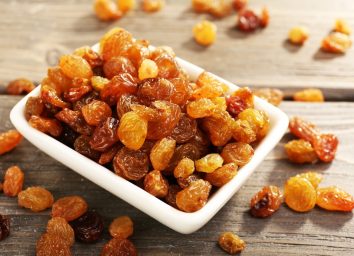These Popular Grocery Store Foods Can Help You Fight COVID Strains
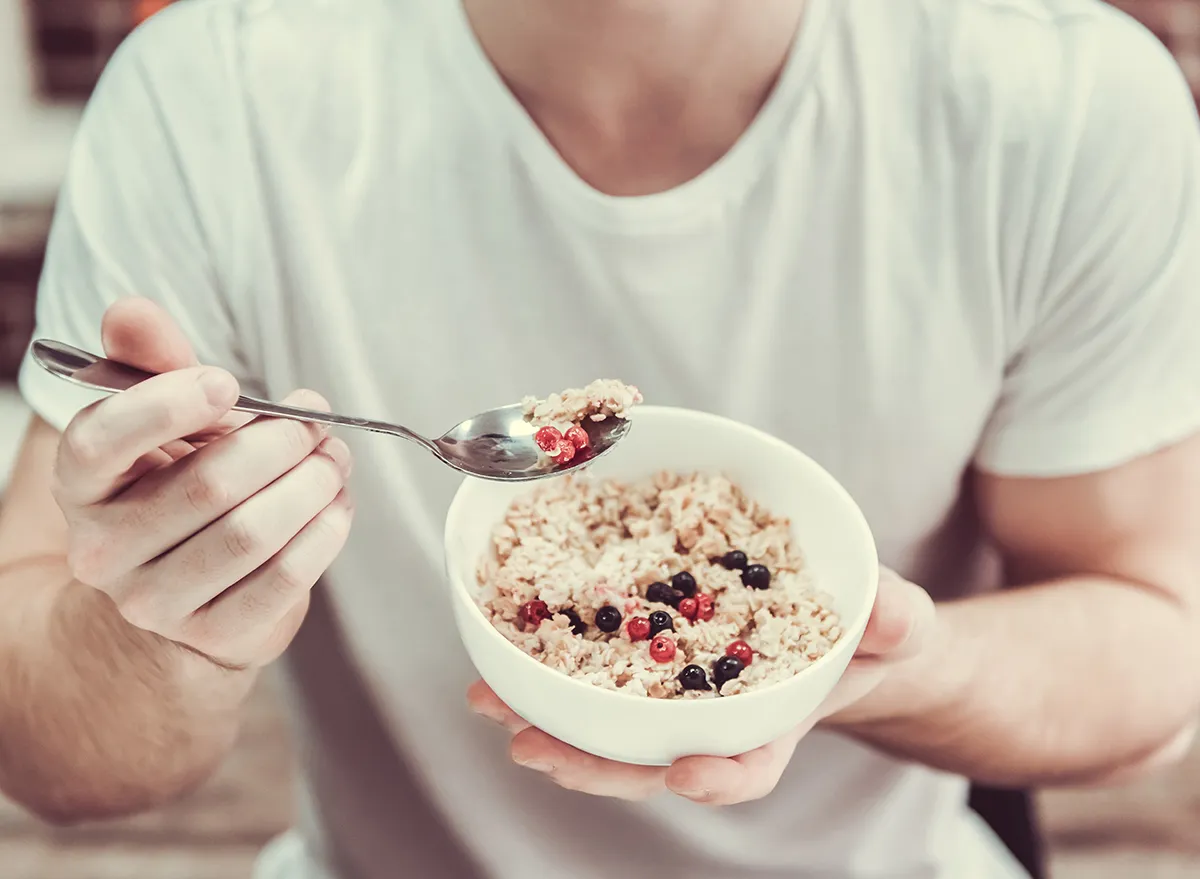
First things first: sadly, a healthy diet isn't a cure for COVID-19. If you believe you have been in close contact with someone who has tested positive or you are experiencing any symptoms as outlined by the Centers for Disease Control and Prevention, schedule a test as soon as possible. If you have contracted any strain of this virus, it's essential to stock your fridge and pantry with helpful, healthy foods that can help you fight COVID, stimulate your immune system, and provide comfort. Here, we spoke with people who have had COVID and nutritionists on their top recommendations. And for more tips during COVID, here's The One Vitamin Doctors Are Urging Everyone to Take Right Now.
Lemon ginger tea
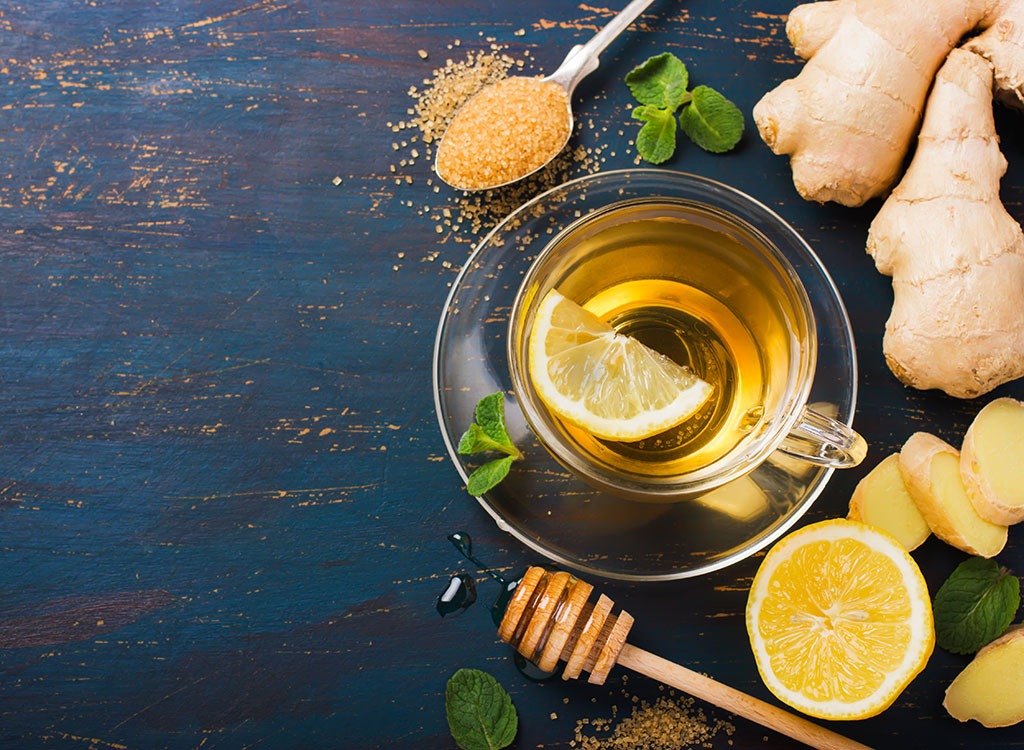
While she was sick, publicist Alexa Nikiforou has felt stuffy, making hot beverages a soothing remedy.
"We all know drinking tea is good when you're sick but having lemon ginger flavor helps as they both have anti-inflammatory and immunity properties that help with the congestion," she says.
Here's What Happens to Your Body If You Drink Tea Every Day.
Frozen veggies
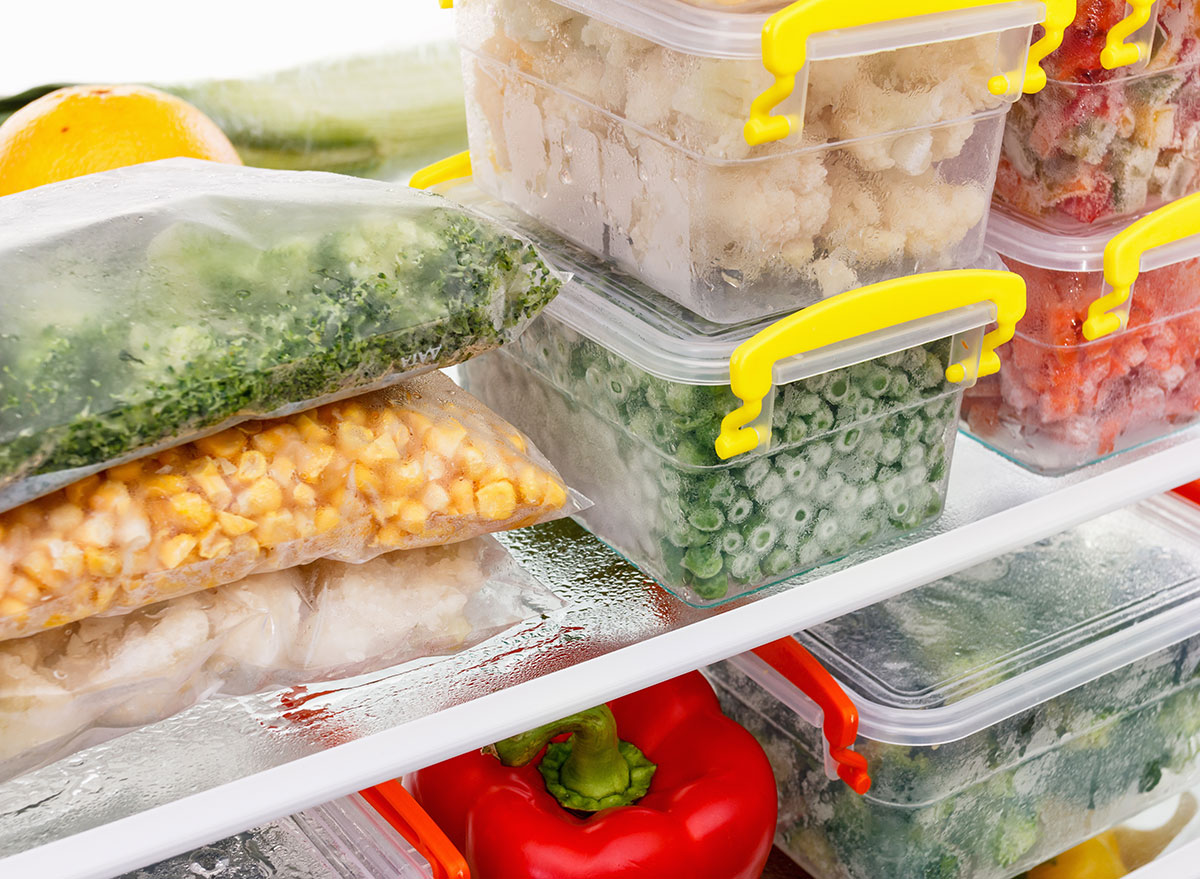
While sure, you may not have much of an appetite; it's important to still provide your body with the nutrients it needs to prosper. However, you may be tempted to blend up your veggies instead of cooking them since it's less effort, making the frozen variety appealing.
Registered dietitian and quality manager at Onnit, Emily Winkler, recommends keeping broccoli, spinach, and other vegetables in your freezer, so you have options when you want them.
"Frozen veggies are flash frozen, so they are not cooked with a ton of salt like canned veggies, but they stay good so much longer than fresh veggies," she says.
Here are the 15 Best Frozen Fruits & Vegetables to Keep on Hand.
Vegetable and lentil soup
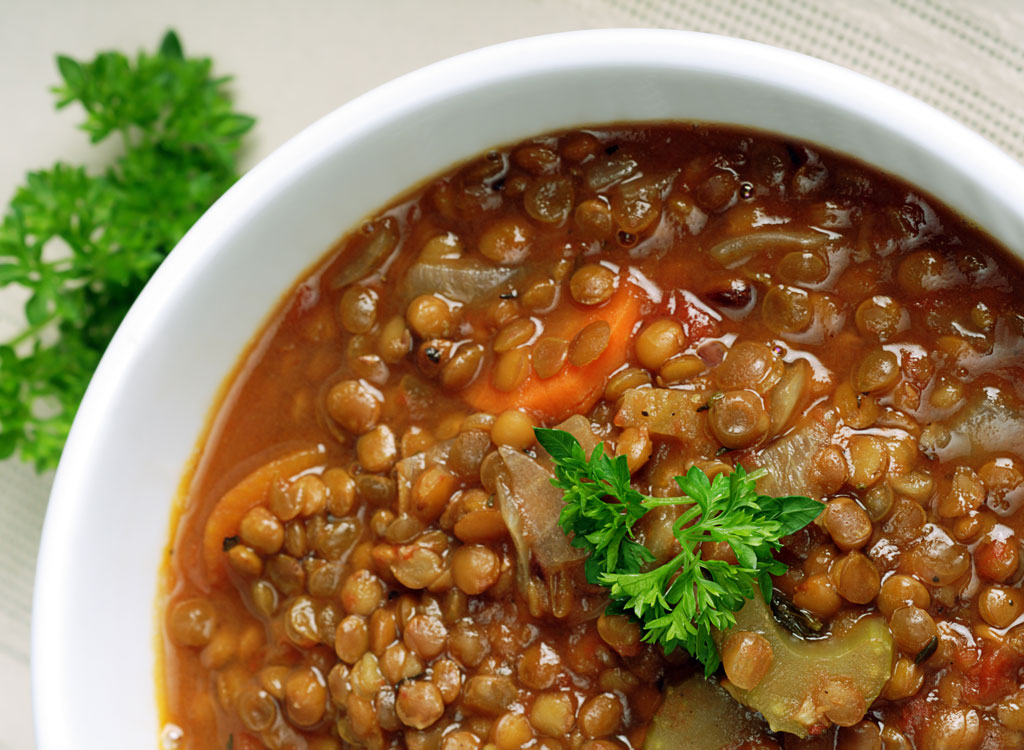
Truly, any soup will do, but Nikiforou raves about vegetable and lentil soups since they provide a reliable source of protein that other liquid meals don't offer. However, if you're more of a chicken soup type of person when you're feeling under the weather, buy the ingredients frozen to have on hand.
Bone broth

When you need to give your immune system a fighting chance, bone broth is an incredible staple to have on hand for your quarantine, according to Dr. Josh Axe, D.N.M., C.N.S, founder of Ancient Nutrition. How come? As he explains, it contains a number of compounds that help support a healthy gut microbiome, which is where 70% of our immune system is located.
"Plus, collagen and amino acids found in bone broth, as well as essential minerals and other compounds, help to repair the gut lining which supports immune function by aiding in nutrient absorption and defending against inflammation," he says. "You can either sip on real bone broth daily or use a bone broth supplement for convenience such as powdered bone broth protein."
Here are the 5 Health Benefits of Bone Broth.
Quick oats or oatmeal

When you are staying at home 24/7, recovering from COVID, you may lack the energy to whip up meals or complete complicated recipes. Instead, Winkler suggests having some quick oats or oatmeal in your pantry since it's a high-fiber meal that you can make in two minutes.
"An added bonus is that it will keep you full longer so you can fight your boredom hunger craving," she says.
You can whip up one of these 50 Healthy Overnight Oats Recipes.
Leafy greens
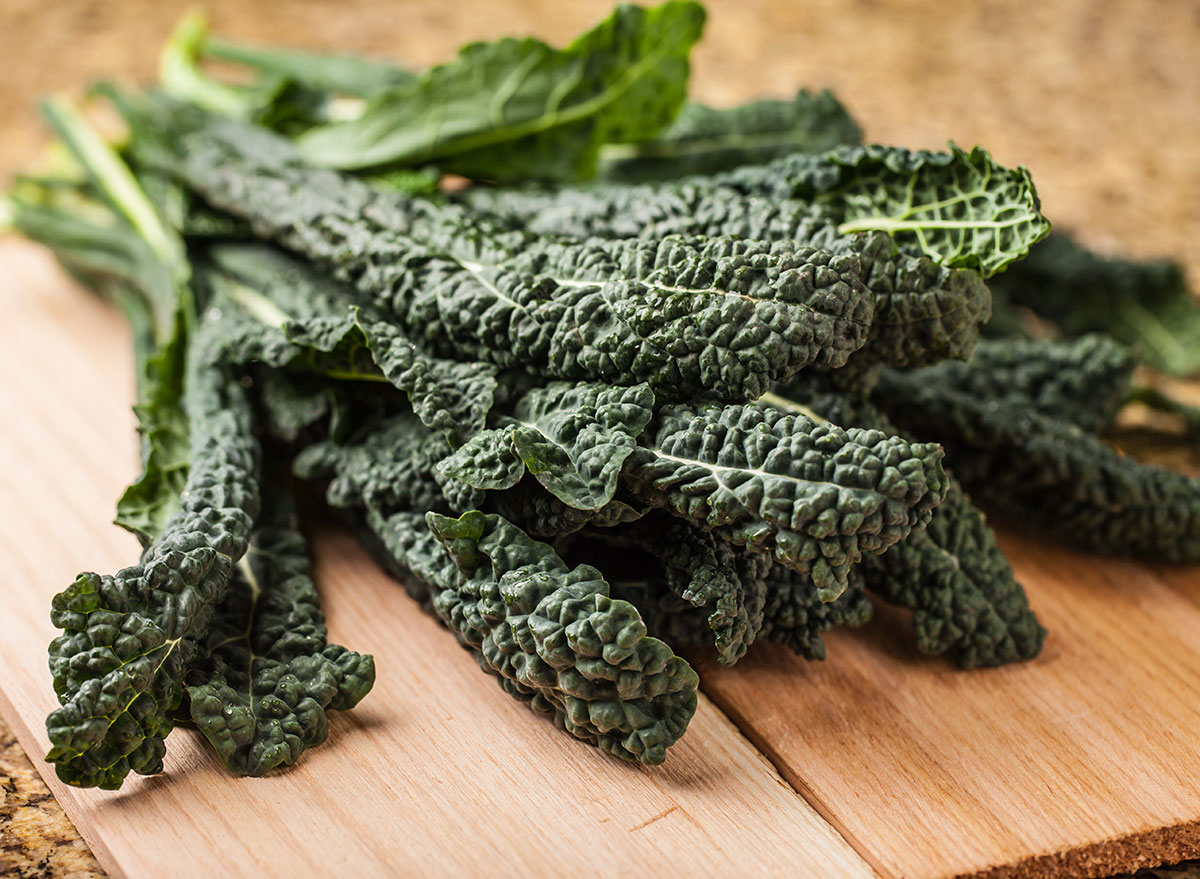
Greens like spinach, kale, and chard are some of the best sources of antioxidants and vitamin C, which help to support a healthy immune system, according to Dr. Axe. "Including vitamin-C rich greens in your diet may help control levels of free radicals in a way that helps to destroy viruses and bacteria," he explains. "Vitamin C can also renew the body's antioxidant protection, which is used up more rapidly when someone is sick and recovering from an illness, plus it may help control inflammatory responses."
Gluten-free waffles
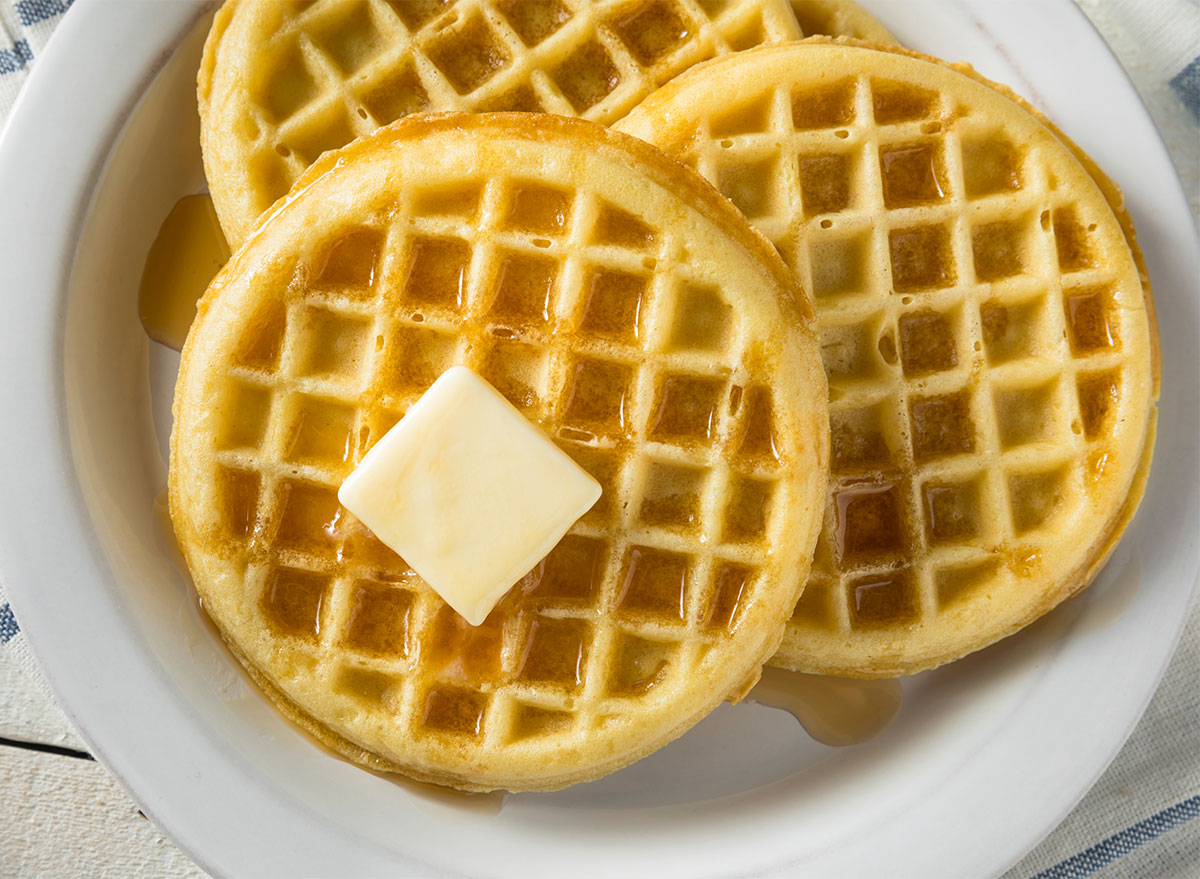
After eating soup and liquids non-stop while on the road to recovery from the virus, Nikiforou says you will want some type of carb to help give you energy.
"I was constantly trying to find something that was anti-inflammatory, and that would be easy to make, especially since moving requires a lot of effort that your body doesn't necessarily have," she says.
To the rescue were gluten-free waffles that could quickly be heated up and enjoyed in a few minutes.
Protein bars/snacks
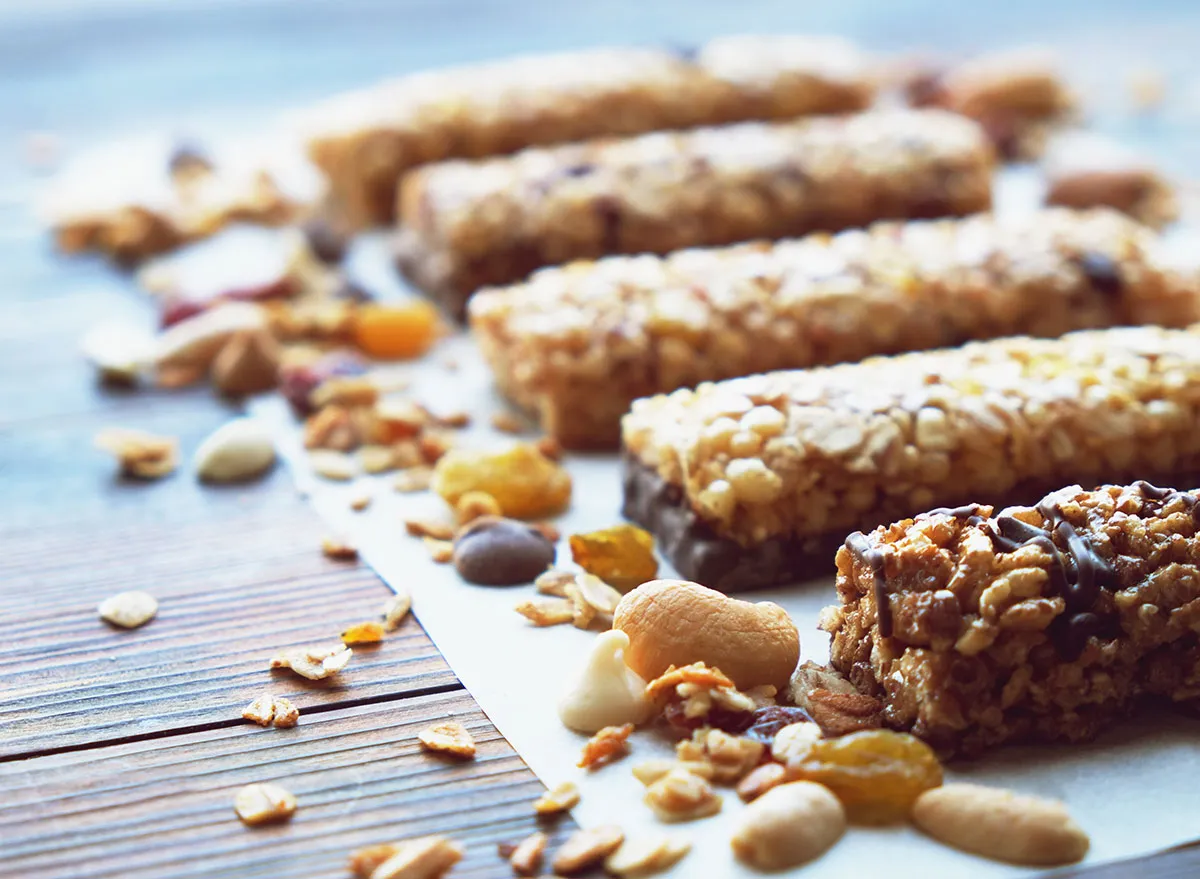
Winkler says protein bars and protein snacks can come in handy for those days when eating anything feels like a chore and uphill battles. Because they ensure we feel and satisfied for hours, we can rest without hunger pains.
"Keeping your protein intake high can support your energy levels, too," she says.
Here are the 25 Best Store-Bought High-Protein Snacks.
Berries

While Dr. Axe recommends all berries since they have a rich content of vitamin C, A, and other antioxidants, his favorites are acai, goji, and camu camu.
"They help to manage free radical damage and oxidative stress which contribute to the aging process," he says. "They boost antioxidant activity in the body and also help protect and repair connective tissues, such as those in the gut that are needed to maintain immune defenses."
Spices
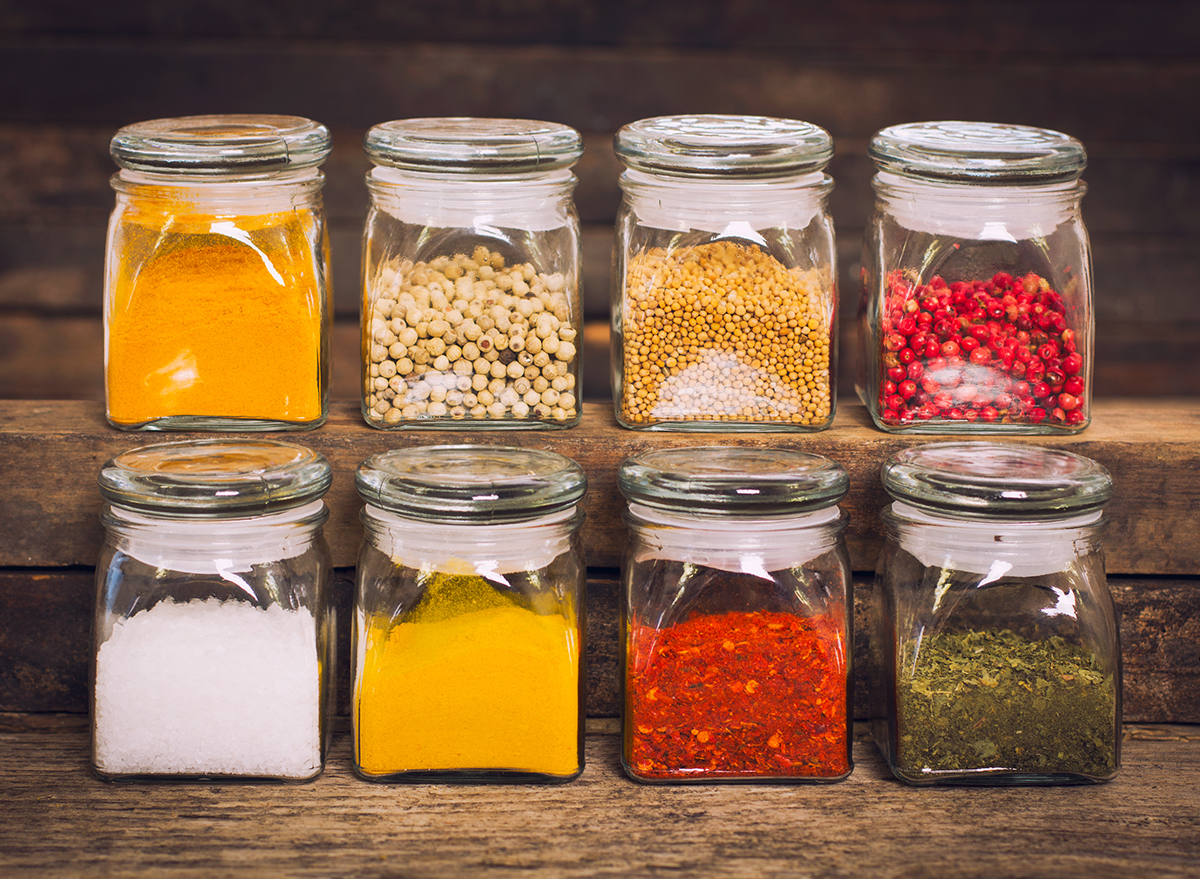
Brigid Titgemeier, a functional medicine registered dietitian, suggests adding at least one spice or herb per meal since it's the easiest way to add an abundance of antioxidants to our diet. Specifically, the following seasonings support a healthy immune system and fight inflammation: dried cloves, mint leaves, oregano, rosemary, saffron, sage, thyme, cinnamon, nutmeg, ginger, basil, cilantro, dill, parsley, garlic powder, and turmeric.
For more on staying healthy during the pandemic, These Vitamins May Help Prevent COVID, Study Finds.
